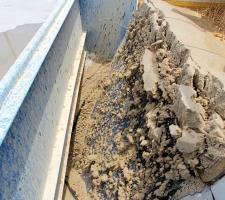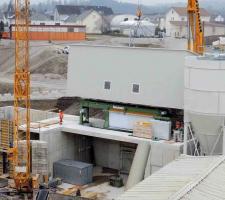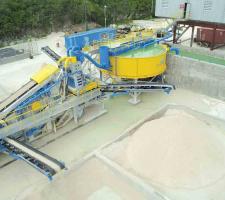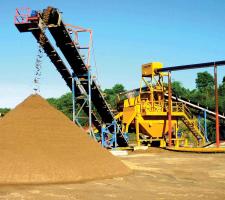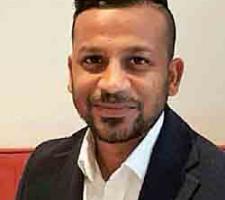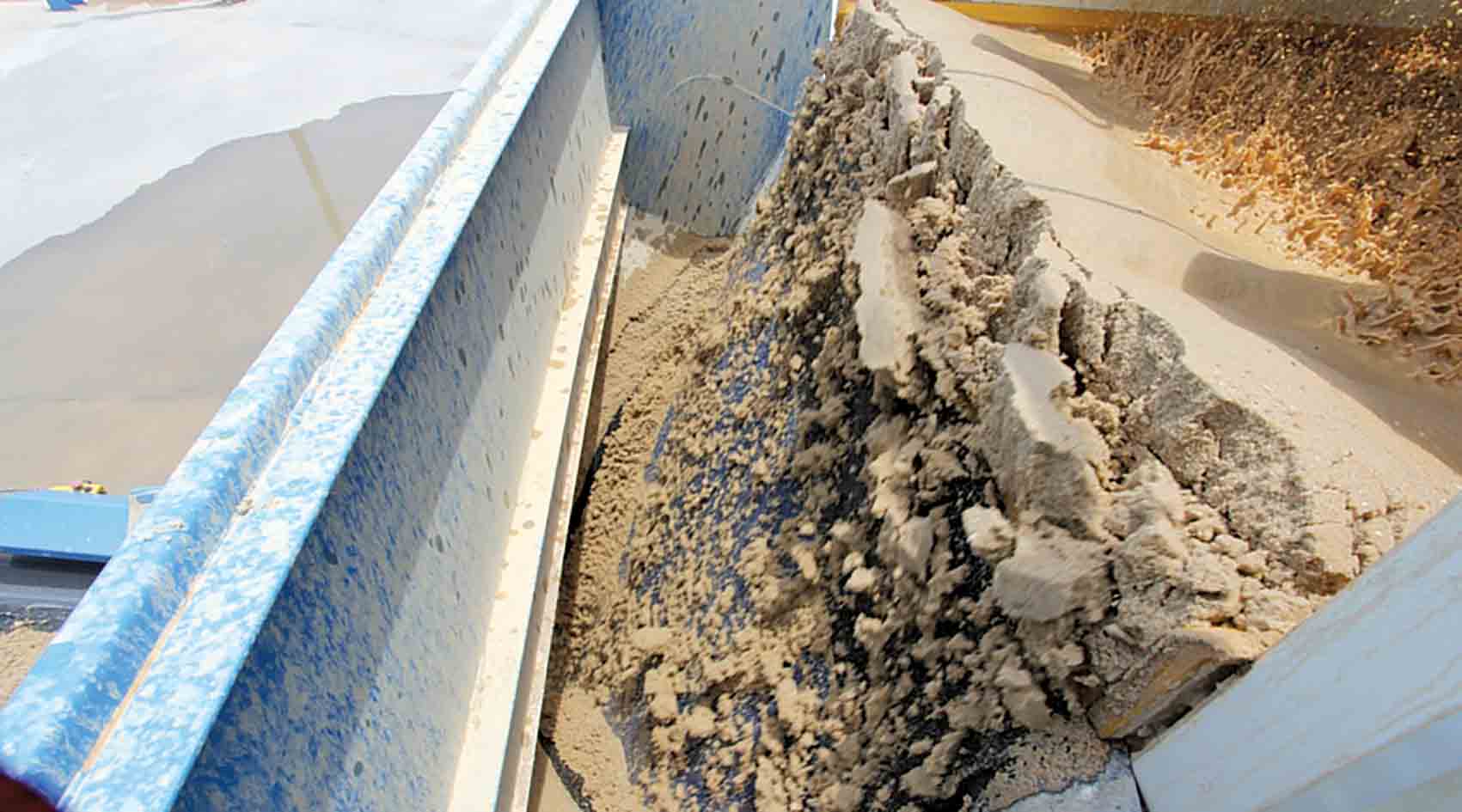
Efficient water recycling, management and filtration is a must for any quarry business looking to stay one step ahead of the competition. Guy Woodford reports on the sector’s latest news.
“This move helps in the internationalisation of Baioni,” says Milena Bianchi, Baioni Environment’s marketing & communications manager. “Having a market presence in China will also open a path to the Russian market. Russia has a long-standing history as a partner for Italian industries. But we need to make our products successful in China before we look at Russia.”
As part of a big exports push, Bianchi says that Baioni is looking into potential co-manufacturing partnerships for its crushing, screening, water treatment and washing solutions in Egypt and the Middle East. “We have a new dealer in Saudi Arabia, which is a big market for crushing, screening, water treatment and washing equipment. The UAE is another interesting market for us, and we’re also doing market research on Iran. There’s the Iran ConMin 2016 exhibition for the quarrying, mining and construction industries taking place in Tehran in November, and Unacea has organised a stand for Italian companies.”
Another eye-catching export growth move for Baioni, a 90-employee company with a €15 million annual turnover, was the opening of a branch office near La Havana in Cuba in April this year. Baioni has been selling its products in the Caribbean island nation since 2012, having spent the previous six-years applying for a place on the island’s approved foreign traders’ list.
Bianchi continues: “It’s a very strong market. We’ve recently sold our fourth wash plant in Cuba, to a Cuban government import-export company that’s part of the Ministry of Construction. The plant includes a BaiWash, a BaiPress [filter press] and a GRF fines recovery solution. The plant was delivered in July 2016 and is going to be used at the Cantera Habana quarry to produce sand, to wash aggregate products.”
Previous Baioni sales in Cuba have included five MIL 1000 SP horizontal impact crushers to the same government import-export company that recently bought the Baioni wash plant solution.
Baioni now also takes a commission from selling other Italian companies’ products into Cuba as part of their approved traders’ list status – offering
Meanwhile, for its crushing, screening and washing plant model customers, Baioni is also now offering full
“The first Baioni plant with Ma-estro automation is a 500 tonnes an hour plant, including a Baioni primary crushing unit with a MIP impact crusher, secondary crushing stage with MIS impact crusher and four screens, sold to an Algerian limestone quarry customer. The customer will mainly use the plant during the construction of new highways,” explains Bianchi.
The second Baioni plant with Ma-estro automation is a 250 tonnes/hour plant, including a Baioni BP jaw crusher, a MIS secondary impact crusher and a MIL tertiary impact crusher, sold to an Algerian state company.
The third Baioni plant with Ma-estro automation is a 200tonnes/hour plant, including a secondary and tertiary crushing stages, plus fines recovery GRF, washing and clarification plant. The automation covers both the crushing and screening and the washing and clarification section.
Tecnoidea Impianti is supplying a bespoke turnkey wet mud and aggregate waste water treatment plant to a major Strabag quarry in Switzerland.
The Italian water treatment plant manufacturer is taking part in Strabag’s Bürglen quarry renovation project. Phase one of its wet mud and aggregate waste water treatment plant installation, part of a joint venture works program involving Swiss and German companies, has seen the delivery and operational start-up of a FPTA 1620-80 (extendable to 100 plates) high beam filter press, a 235m³ clarifier settling tank (12.5m high x 6.5m diameter), and relevant ancillaries. The first project phase units are now treating water from a renewed aggregates washing plant.
“For this customer, we are supplying a turnkey plant including piping, building, wiring, lighting and control panel for the drilling mud and aggregate waste water treatment plant. Nothing is being sub-contracted and it has been a big responsibility for us,” explains Matteo Parolini, Tecnoidea Impianti’s process engineer. “It’s the first time with one of our filter presses that we’ve used straight stainless steel hydraulic pipes to meet ever more stringent Swiss-German standard requirements.”
Once fully installed, the
“With this joint venture,
Tecnoidea Impianti’s high beam filter presses – such as the FPTA 1620-80 model for Strabag’s Bürglen quarry renovation project – have many features, including a sand blasted SA 2.5, zinc coated and epoxy painted frame; a multi-task trolley for plates opening, shaking and closing, plus clothes-washing nozzles and maintenance winch; a highly effective and non-intrusive automatic filtering clothes washing system; and filtering plates with external and visible outlet pipes to check the filtered water quality.
The Strabag Beton Bürglen project represents the latest example of what has been a successful trading period for Tecnoidea Impianti in Germany, Switzerland and Austria, where it’s represented by the Metcam dealership. “We have increased our market share in these countries and have a very good partnership with Metcam,” says Parolini.
“The European market is asking for more filter presses, especially where a site has previously had a big lagoon. Governments are saying that, from now on, building material producers must not waste water. You must recover it with a settling tank and filter press technologies. In some German areas, for example, producers are being fined 1 cent for each cubic metre of waste water discharged into a lagoon. The goal is to save space as well as recycle as much water as possible.”
CDE Global (CDE) says it is increasingly witnessing a strategic shift by African quarry and mine operators who recognise that to gain an edge over their competitors, they need to offer the best quality sand to their customers. To target a better and more profitable market segment and increase return on investment, operators are starting to invest in more efficient sand and gravel washing systems such as the popular CDE EvoWash, which comes with its own electric control panel and is pre-wired.
Water conservation is a major concern in Africa. Northern Irish company, CDE, reports that savvy customers often combine their plant with a CDE AquaCycle, which recycles up to 90% of used water and runs for as little as R3/tonne. Mobile and compact CDE plants, with advanced no-spill transfer points, high quality components and reduced maintenance, offer a simple, one-touch solution.
Wayne Warren, CDE business manager for Sub-Saharan Africa, says: “It is definitely worth looking beyond the initial cost of the equipment to see that in the long run, bucket wheel washers and screw classifiers are actually a money drain.
“With a modular and economical sand washing system that requires a minimal amount of civils and provides consistent high-quality sand in any quantities, the choice is clear.
“If you buy the right plant for your operations, reduced maintenance, reduced manpower, reduced slimes management and continuous operation with water control far outweigh any short term savings.”
CDE says it understands that operators may not always feel confident to be left to their own devices once their plant has been installed. It offers a complete after care package to its customers, who benefit from the best after-sales service in the business.
Warren continues: “For operators located in very remote regions, we also advise stocking some spares on site to reduce risk in case of a breakdown or preventative maintenance actions. We have a wealth of experience in washing applications in various types of rock, so we are able to advise our customers on the best recommended spares package.
“Also, as every part is built and tested at the CDE factory before the plant is tested again and shipped to the customers, deployment time is short with minimal disruption to the site’s operations.”
The CDE EvoWash range has, says CDE, revolutionised the sand and gravel washing industry in terms of efficiency, allowing customers to wash even the dirtiest of sands and aggregates thanks to its pinpoint accuracy in silt and clay cut points (usually around 75 to 63 micron).
The complementary CDE AquaCycle range enables user-friendly water management on site, with a thickener system that recirculates up to 90% of the waste water from the sand/gravel washing plant immediately for reuse. As a welcome bonus, the AquaCycle comes as a neat compact solution that can easily be added on to the sand washing plant.
Comprising an EvoWash unit and double or triple deck rinsing screens onto one compact chassis, the CDE M2500 was the first all-in-one washing solution to be created, with a capacity of up to 250 tonnes per hour. Its powerful upgrade, the M4500, with a capacity of up to 450 tonnes per hour, has recently been added to the M-Series range.
Paying particular attention to quality, performance and resilience, all transfer points, pumps and pipes are rubber-lined for maximum wear resistance. Screening media use Isenmann high-wear life PU panels and the Infinity range features a high frequency zero-weld screen design. Each machine is developed, made to order and tested at the CDE factory to satisfy every requirement set out by the client.
For quarry and mine operators who wish to optimise business opportunities, the flexibility of new sand washing opportunities and the range of applications available to them are set to revolutionise the African market.
Nicolan Govender, CDE regional manager Africa, reflects on the future of the sand and gravel washing business: “The concrete market in Africa is screaming for better quality sand. Currently, concrete producers are making do with a combination of dry crusher sand and natural river sand.
“The gradings and quality of these sands fluctuate, especially the natural river sand in regions affected by drought. Washed sand and gravels are consistent and enable concrete producers to steady their mix designs and thus save on water and cement consumption.
“Environmental pressure to stop river sand mining, as well as increased government duties on these mining activities will make natural river and plaster sand either scarce or too expensive for the local market.
“The future of the African construction and mining sector is bright as we are starting to witness an upturn in the region’s economy. Major infrastructural projects are currently in the pipeline and, as they commence in the near future, manufactured sand is going to become more prominent, with natural river sand resources becoming less attractive due to taxes or availability.
“Sand and gravel washing allows you to sort and valorise construction and demolition waste, produce rinsed aggregates in demand for road projects and create a variety of sands for the glass and golf industries to name just a few applications.”
“In short”, Govender concludes, “if, as an operator, you have a washing solution that covers both your customers’ needs for various grades of high quality sand and gravel and your own requirements for efficient, reliable and economical equipment providing high return on investment, you are master of your washing destiny.”


